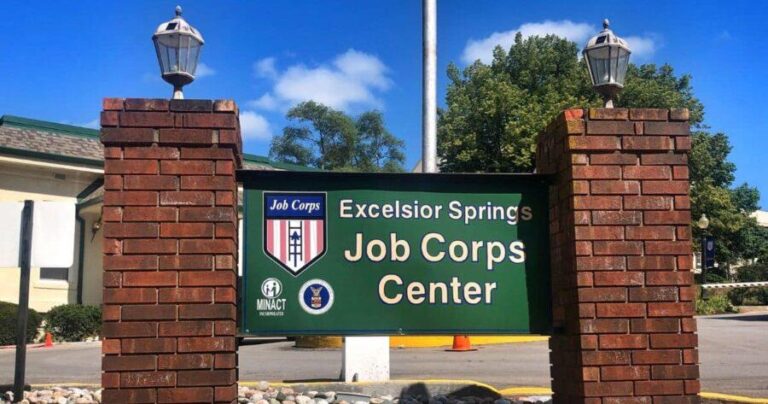Temporary Shutdown of Job Corps Centers Disrupts Student Housing and Training
Sudden Closure of Job Corps Centers Leaves Students Homeless and Without Support
Hundreds of young individuals enrolled in the Job Corps program have been unexpectedly displaced following the federal government’s immediate suspension of operations at several centers. Many of these students depended on the centers for on-site housing, meals, and comprehensive vocational training designed to prepare them for the workforce. The abrupt halt has not only interrupted their educational journeys but also thrust many into unstable living situations, prompting urgent responses from local nonprofits and community groups.
Efforts are underway to provide temporary shelter and essential services; however, students and advocates express deep frustration over the lack of advance notice and uncertainty about long-term solutions. The displaced youth face multiple challenges, including:
- Finding secure and stable housing alternatives
- Continuing their career and skills development without interruption
- Accessing mental health support and social assistance
- Managing transportation logistics to new training locations or resources
| Urgent Needs | Responsible Organizations |
|---|---|
| Temporary Housing Solutions | Local Shelter Coalitions, Social Welfare Agencies |
| Provision of Food and Essentials | Community Food Banks, Charitable Groups |
| Educational Program Continuity | Job Corps Regional Offices, Partner Schools |
| Psychological and Social Services | Mental Health Clinics, Youth Support Networks |
Funding Shortfalls Drive Federal Suspension of Job Corps Operations
The federal government attributes the sudden shutdown of Job Corps centers to significant budgetary deficiencies. Delays in federal appropriations and insufficient funding allocations have critically undermined the centers’ capacity to maintain staff, deliver essential services, and uphold daily operations. Despite attempts to secure emergency financial support, the funding gap remains unresolved, compelling the government to pause program activities.
Several financial obstacles have contributed to this crisis, including:
- Inadequate budget allotments that fall short of covering operational expenses.
- Prolonged delays in disbursing federal funds caused by administrative hurdles.
- Escalating costs related to student support and facility upkeep.
| Funding Category | Current Status | Consequences |
|---|---|---|
| Operational Funding | Insufficient | Staff Reductions and Service Cutbacks |
| Emergency Grant Requests | Awaiting Approval | Inability to Stabilize Finances |
| Facility Maintenance Budget | Deficient | Postponed Repairs and Upgrades |
Community Advocates Call for Swift Measures to Aid Displaced Youth
Local leaders and youth advocates have raised urgent alarms following the federal suspension of Job Corps operations, emphasizing the critical need to support hundreds of young people suddenly cut off from vital educational and workforce development resources. The closure threatens to widen existing gaps in training and employment readiness for vulnerable populations.
Advocates stress the importance of immediate interventions to sustain progress for these students. Their primary recommendations include:
- Implementing temporary enrollment programs to prevent training interruptions
- Boosting funding for community-based job readiness and skill-building initiatives
- Fostering partnerships between government, nonprofits, and private sector employers to expand opportunities
| Proposed Action | Accountable Parties | Implementation Timeline |
|---|---|---|
| Emergency Enrollment Assistance | State Education Agencies | Within 30 Days |
| Review and Increase Funding Allocations | Federal and State Governments | Next Fiscal Quarter |
| Develop Job Placement Collaborations | Nonprofits and Business Community | Ongoing |
Strategies to Maintain Workforce Program Stability Amid Federal Funding Interruptions
To prevent future disruptions to essential workforce development programs like Job Corps during federal funding lapses, agencies should establish dedicated contingency funds that guarantee continuous operation. Enhancing communication channels to keep students, staff, and partners well-informed can reduce uncertainty and improve crisis response. Additionally, creating cross-agency task forces can facilitate coordinated resource management and ensure uninterrupted service delivery.
- Pre-approved emergency response plans for all Job Corps centers
- Retention policies for critical staff during funding gaps
- Clear guidance for students on alternative training and support options
- Real-time financial monitoring systems to manage shutdown impacts effectively
| Recommendation | Anticipated Outcome |
|---|---|
| Emergency Reserve Funds | Uninterrupted program operations despite funding delays |
| Robust Communication Protocols | Minimized confusion and anxiety among students and staff |
| Inter-agency Collaboration | Efficient resource allocation and decision-making |
| Alternative Training Access | Reduced disruption to student learning and skill acquisition |
Looking Ahead: Navigating the Future of Job Corps Amid Uncertainty
As the federal government pauses Job Corps operations nationwide, thousands of students face an uncertain future regarding their education and career development. With no definitive timeline for reopening, displaced participants are urgently seeking alternative programs and support systems. Government officials continue to evaluate the situation and explore solutions, but the immediate effects on these young individuals remain a critical concern. Stakeholders and the public await further updates as efforts to restore and strengthen the program progress.




